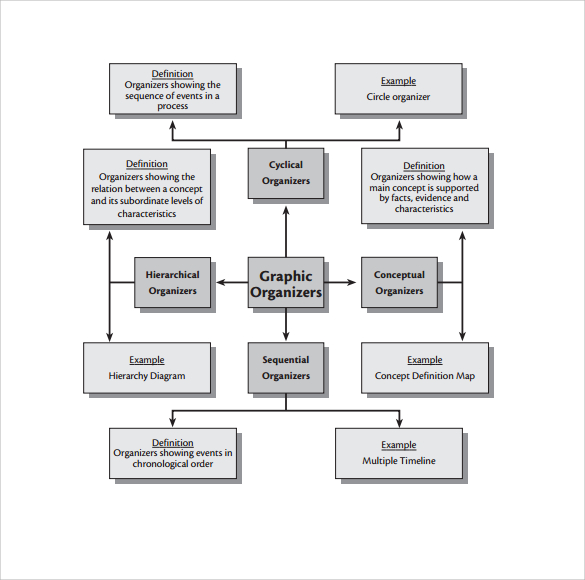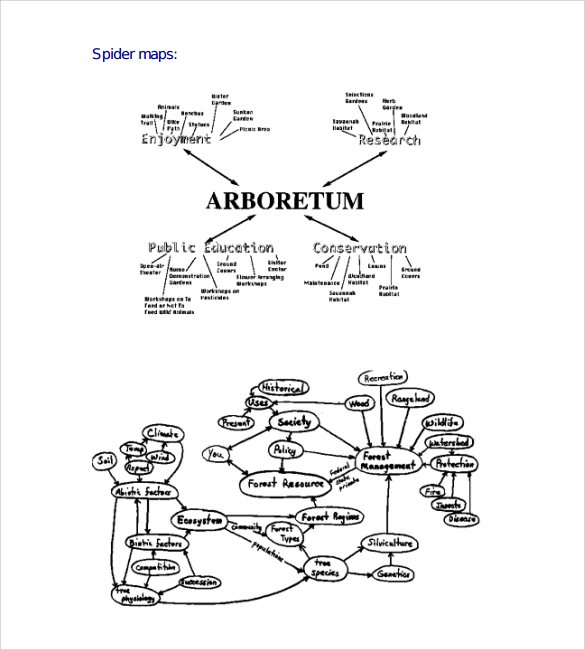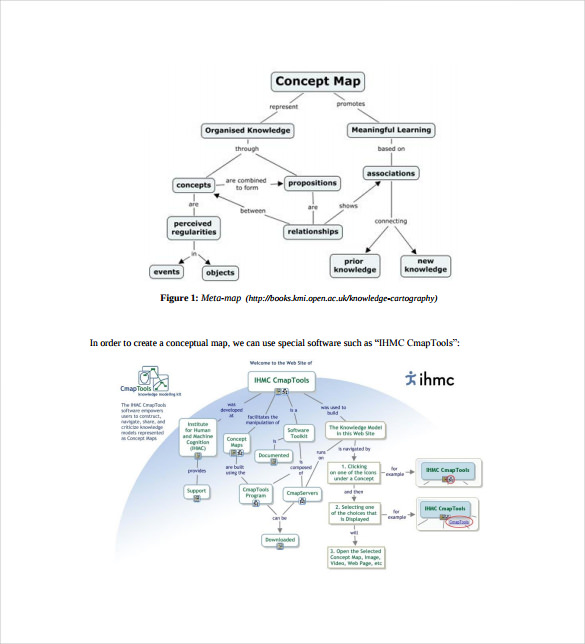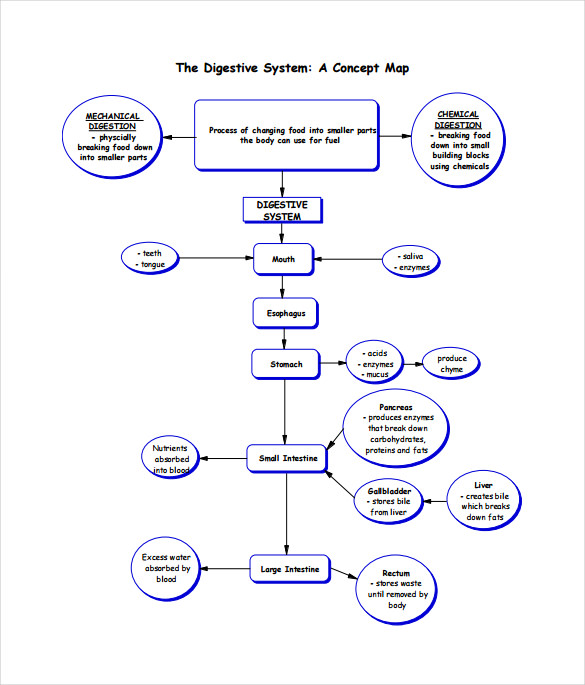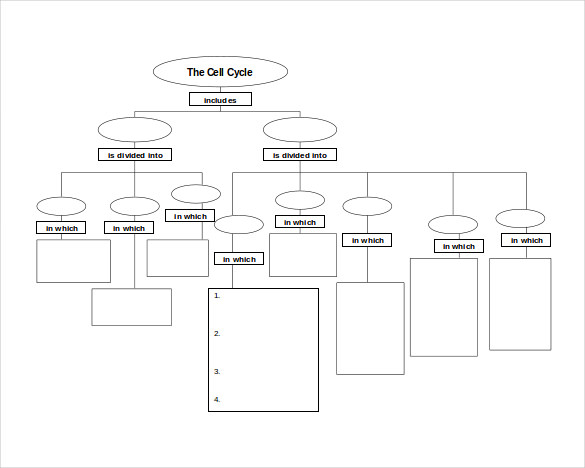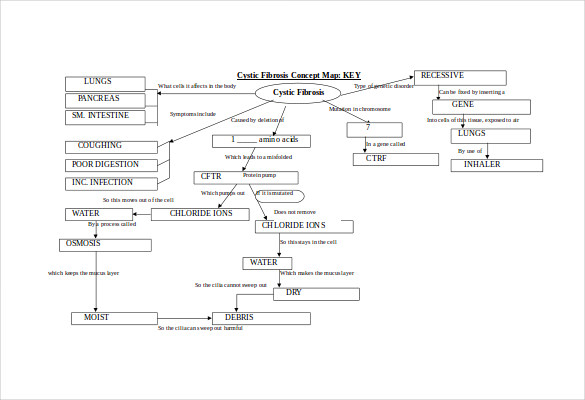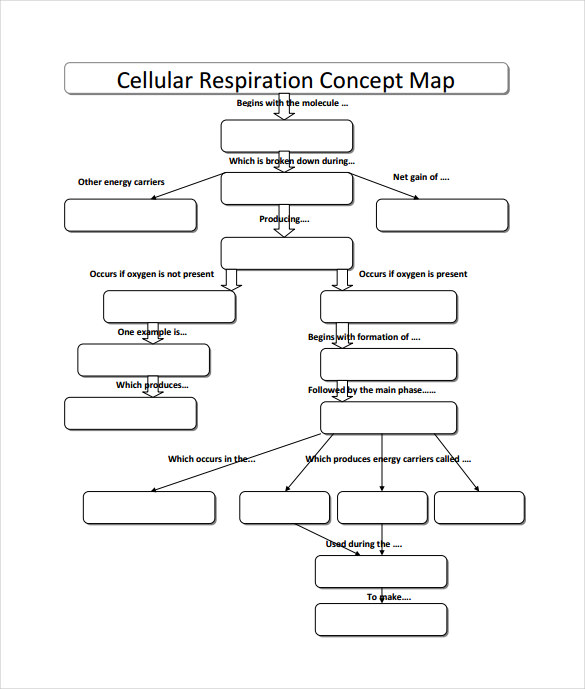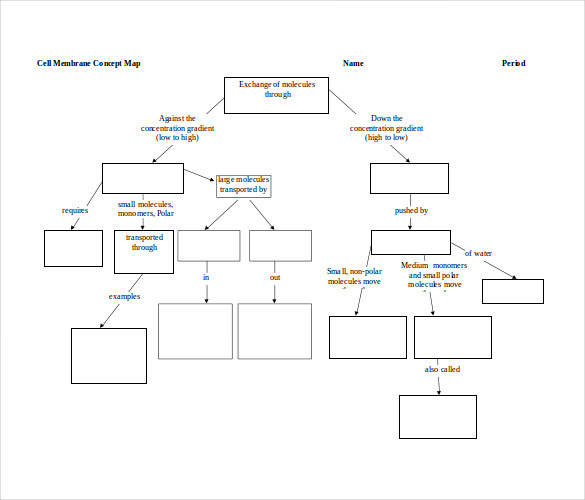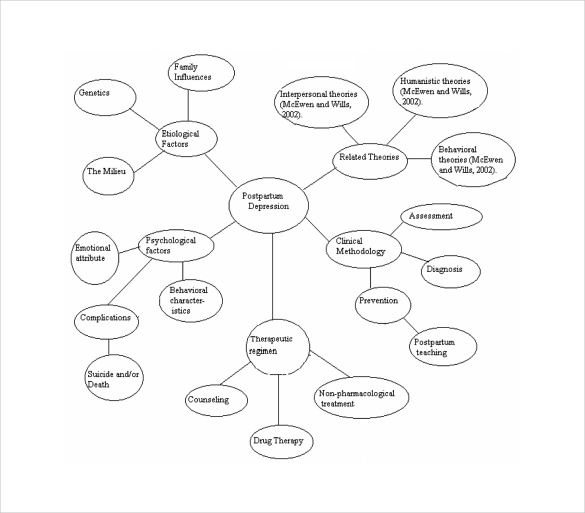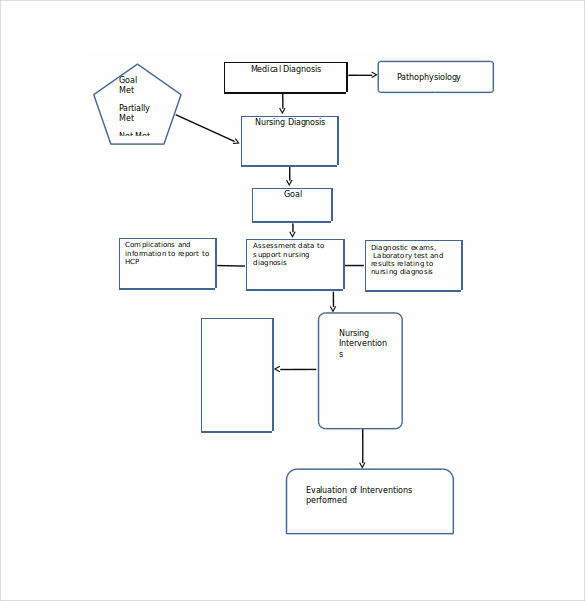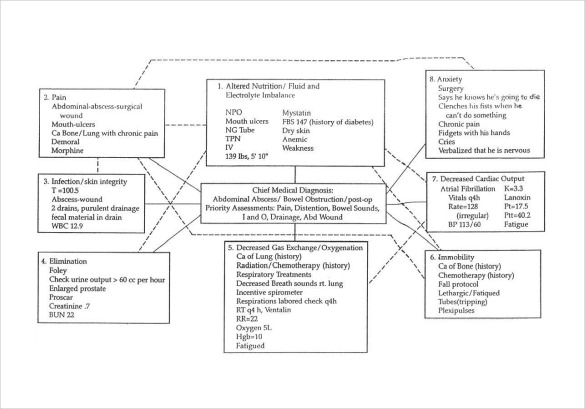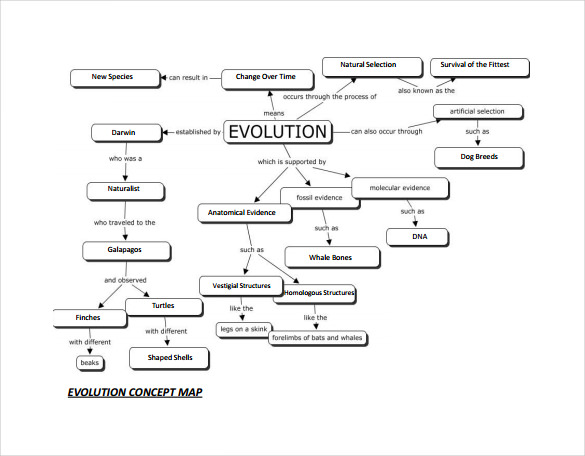A concept map is a graphical tool that aims at systematic organization and representation of any kind of knowledge. It can be used to make a concept clear by using boxes or circles, or to indicate a relationship by way of a connecting line. There are different kinds of concept Eco Map Template that can be used for different purposes. Use an appropriate concept map template to visually signify your information, and make things easily understandable to all.
A concept map is a graphical tool that aims at systematic organization and representation of any kind of knowledge. It can be used to make a concept clear by using boxes or circles, or to indicate a relationship by way of a connecting line. There are different kinds of concept Eco Map Template that can be used for different purposes. Use an appropriate concept map template to visually signify your information, and make things easily understandable to all.
Chronological Concept Map Template
This kind of concept map aims at presenting information in a chronological order of sequence. The basic information is kept on the top, and its sub-heads are placed below one after the other. A definite pattern is followed in this type of concept map, while placing most general information on the top, moving down to the precise and specific points.
Spider Concept Map Template
In a spider concept map template, the central theme is placed in the map’s center, and the related sub-themes are radiated outwards surrounding it. This kind of concept map is extremely easy to read, comprehend and configure, and it allows every piece of information to be organized surrounding a unified theme. Use a well-defined spider concept map template to organize your data methodically.
Flowchart Concept Map Template
In a flowchart concept map, any kind of information is organized in linear format. Commonly, it graphically represents any function or relationship in a straight line, as in any information directly proportionate to each other. It is an easy to read representation of information in which data is organized in most ordered and logical fashion.
Systems Concept Map Template
This type of concept map represents data in a layout similar to a flowchart, but along with inputs and outputs. It can be used to show several relationships at a time, and is usually very complete in its structure. It can be effectively used to signify problem solving and critical thinking methods. It is highly successful in linking practice and theory to each other.
Cell Cycle Concept Map Word Template
Molecular Models Concept Map Word Doc
Cellular Respiration Concept Map PDF
Cell Membrane Concept in Doc
Serial Concept Map PDF Template
Concept Care Map Template Word Template
Nursing Concept Map PDF Template
Evolution Concept Map in PDF
Uses of Concept Map templates
- To visually represent concepts, data and information
- To give a systematic view to the information to be represented
- To make things easier to understand
Target Audience of Concept Map Templates
- Students and professors
- Data analysts
- Scientists and researchers
- Medical professionals
- Economists
- Anyone who wants to represent any kind of information in a visually understandable way.
Benefits of Concept Map Templates
- It makes even the most complex data easier to read and understand.
- There are different types of templates available, which you can choose as per your requirements.
- The templates are complete. You just need to download it, and fill in the required information at the right places.
How to Create Concept Map Templates
Different types of concept map templates are created differently. Some include circles and boxes, while others include lines and arrows. So, the one that you choose depends on the type of information you want to represent with it. The number of boxes, circles and lines Story Map Templates may vary too, as per the length of the data to be inserted. In addition, a concept map template can be created in different formats, including MS Word, Excel and PowerPoint. So, download a template from here, or ask an expert to create it with professionalism.
Representing information or data in a visual way has never been easier with concept map templates. These are new ways for understanding concepts better, and ensure that the content is presented in the best and easiest way possible. A concept map template can enrich understanding by virtually viewing the things they want to learn. Download an appropriate concept map template from here, fill in the details that you want to represent, and use it to get a better and clearer idea of the information. Every part of these templates is customizable, as per your individual data requirements.
If you have any DMCA issues on this post, please contact us!
Related Posts
Sample Chart of Accounts Templates
Sample Graduation Speech
Rental Ledger Templates
Sample Delivery Note Templates
Sample Discursive Writing Templates
Sample Handover Reports
Sample Pitching Chart
Research Paper Examples
Research Paper Samples
Sample Payment Vouchers Templates
Sample Report Writing Format Templates
Letterhead Samples
Sample Speech
Payslip Templates
Table of Content Templates
